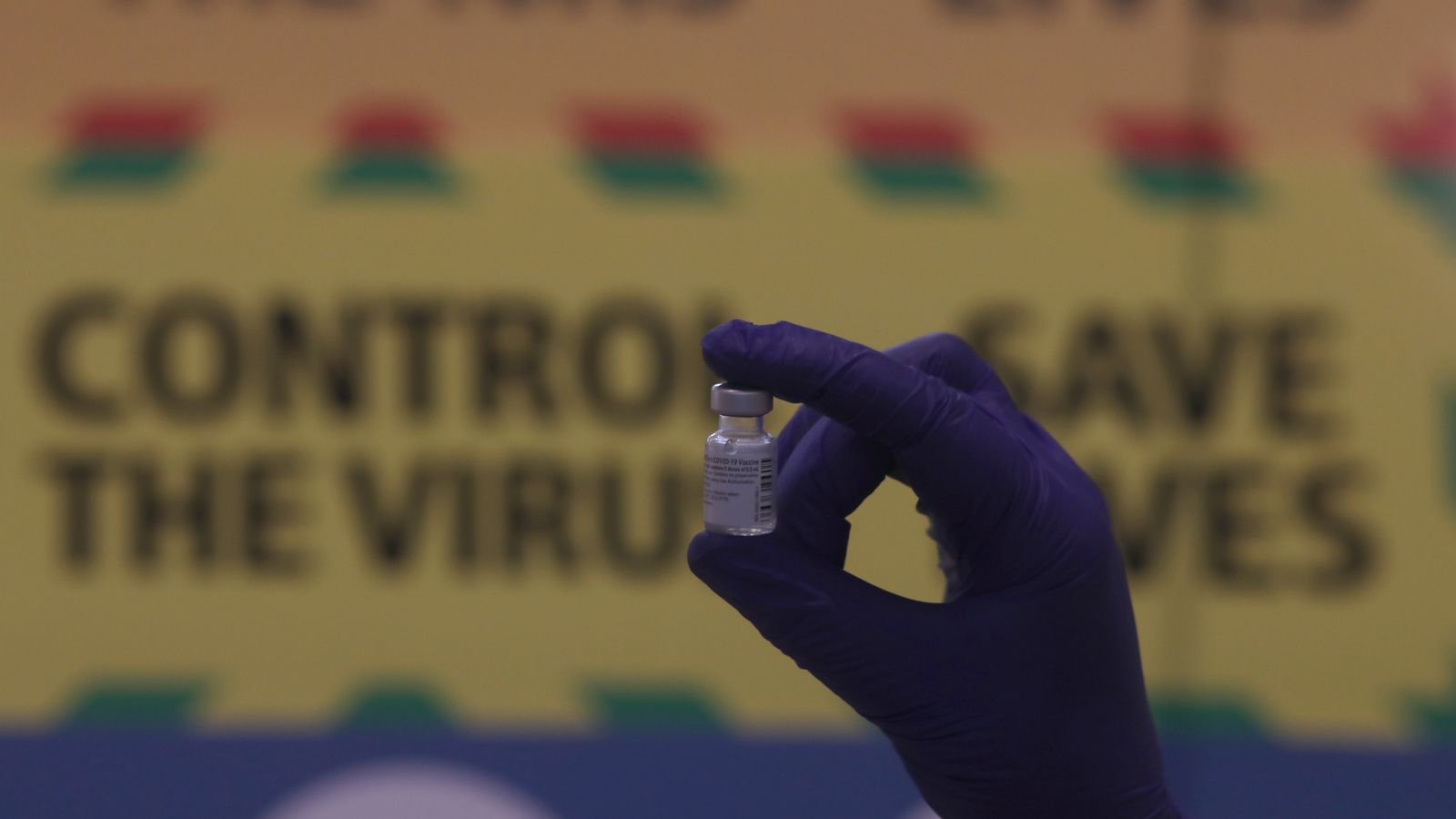Two doses of the Pfizer-BioNTech vaccine are 90% effective against COVID-19 hospitalisation for at least six months but only 47% effective against infection after that period, according to a new study.
The peer-reviewed analysis of the coronavirus jab, published in The Lancet, also found that reductions in the vaccine’s effectiveness against COVID-19 infection was due to this waning over time rather than the Delta variant escaping protection.
Researchers analysed the electronic health records of 3,426,957 people who had received the Pfizer-BioNTech vaccine as part of the study, 5.4% of which (184,041) belonged to people who were infected and 6.6% (12,130) of those which were hospitalised.
Both of the COVID-19 vaccines developed by Pfizer-BioNTech and Moderna use mRNA to send genetic instructions to the body’s cells that result in them producing antibodies for the coronavirus without the virus actually being introduced to their body.
The effectiveness of Pfizer-BioNTech’s vaccine (officially known as BNT162b2) from infection fell from 88% within one month of the second dose to 47% after six months, although it remained 90% effective against hospitalisation regardless of which variant the infected person had.
Whole genome sequencing took place for 8,911 positive samples taken from the cohort, finding that 28% of the positive tests came from people infected with the Delta variant.
But the proportion of cases attributed to the Delta variant rapidly increased from 0.6% in April of this year to nearly 87% by July as the strain became the dominant form of coronavirus in the US.
COVID-19: AstraZeneca requests emergency authoritisation in US or drug that reduces risk of developing coronavirus symptoms by 77%
COVID-19: UK records 35,077 new cases and 33 more coronavirus-related deaths, daily figures show
COVID-19: England to make decision on Ashes tour of Australia this week
“Our variant-specific analysis clearly shows that the BNT162b2 vaccine is effective against all current variants of concern, including Delta,” said Dr Luis Jodar, chief medical officer at Pfizer Vaccines.
“COVID-19 infections in people who have received two vaccine doses are most likely due to waning and not caused by Delta or other variants escaping vaccine protection.”
The authors acknowledged some limitations in their study, especially that they couldn’t determine causal relationships between vaccination and COVID-19 outcomes because the vaccination status among the cohort wasn’t randomised.
They also said they had no data on adherence to mask guidelines, social interactions, occupation, and disease rates in the study population, which could impact the likelihood of contracting and being tested for SARS-CoV-2 infection.






















